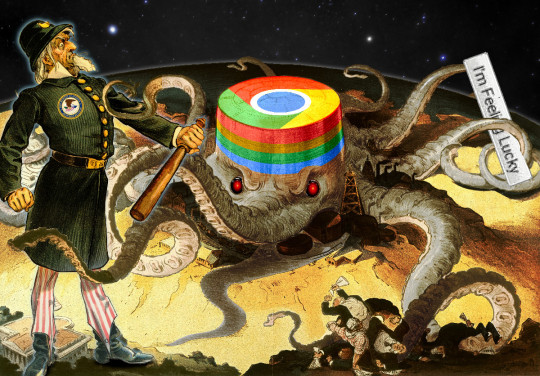#ads Google
Explore tagged Tumblr posts
Text
Creazione Siti Web Torino: Tutti i Servizi di websocialLab.com
websocialLab.com è il tuo partner ideale per realizzare siti web professionali, ottimizzati SEO per la tua attività a Torino e provincia. Di seguito, ti presentiamo i nostri principali servizi:

1. Siti Web Economici Realizziamo soluzioni accessibili e professionali per chi desidera un sito di qualità a un costo contenuto. Perfetti per piccole attività o startup che vogliono iniziare con un investimento ridotto.
2. Siti Vetrina Se hai bisogno di presentare i tuoi servizi o prodotti online, un sito vetrina è la scelta ideale. Layout moderni, informazioni ben strutturate e grande impatto visivo.
3. Siti E-Commerce Vendi online con un sito e-commerce su misura per il tuo business. Dalla gestione dei prodotti ai pagamenti sicuri, il nostro team si occupa di tutto.
4. Design UI/UX Offriamo siti progettati con un’attenzione particolare all’esperienza utente (UX) e al design visivo (UI), per garantire una navigazione fluida e intuitiva.
5. SEO e Posizionamento Un sito web non è nulla senza visibilità. Ottimizziamo il tuo sito per i motori di ricerca, aumentando il traffico e migliorando il posizionamento su Google.
Se stai cercando un servizio affidabile e professionale per la creazione siti web Torino, affidati a websocialLab.com.
➡️ Scopri di più sul nostro sito: Creazione Siti Web Torino
9 notes
·
View notes
Text

suck, and i cannot stress this enough, my cock to the fucking base
122K notes
·
View notes
Text
Panduan Lengkap Google Ads: Cara Beriklan di Google dengan Sukses
#Iklans – #Panduan lengkap #GoogleAds atau #AdWords untuk pemula: Cara #beriklan di #Google dengan #sukses memerlukan pemahaman tentang berbagai aspek, mulai dari penentuan tujuan #kampanye hingga pengelolaan anggaran. Dengan mengikuti langkah-langkah yang tepat dan memanfaatkan fitur-fitur yang tersedia, Anda dapat meningkatkan visibilitas #bisnis Anda dan mencapai hasil yang diinginkan melalui…
#Adwords#Ads#Sukses#Bisnis#Panduan#Iklan#Panduan Google#Periklanan#Kampanye#Beriklan#Kapanye Ads#Iklan Gratis#Tips Iklan#Google#Cara Iklan#Google Ads#Iklan Berbayar#Iklan Google#Iklan Youtube#Ads Google#Search Ads#PPC#Video Ads#Pay Per Click#Local Ads#Jaringan Iklan#Panduan Iklan#Google Adwords
0 notes
Text
Panduan Lengkap Google Ads: Cara Beriklan di Google dengan Sukses
#Iklans – #Panduan lengkap #GoogleAds atau #AdWords untuk pemula: Cara #beriklan di #Google dengan #sukses memerlukan pemahaman tentang berbagai aspek, mulai dari penentuan tujuan #kampanye hingga pengelolaan anggaran. Dengan mengikuti langkah-langkah yang tepat dan memanfaatkan fitur-fitur yang tersedia, Anda dapat meningkatkan visibilitas #bisnis Anda dan mencapai hasil yang diinginkan melalui…
#Adwords#Ads#Sukses#Bisnis#Panduan#Iklan#Panduan Google#Periklanan#Kampanye#Beriklan#Kapanye Ads#Iklan Gratis#Tips Iklan#Google#Cara Iklan#Google Ads#Iklan Berbayar#Iklan Google#Iklan Youtube#Ads Google#Search Ads#PPC#Video Ads#Pay Per Click#Local Ads#Jaringan Iklan#Panduan Iklan#Google Adwords
0 notes
Text
Apa Itu Google Ads? Panduan Lengkap untuk Pemula
#Iklans – Google #Ads adalah salah satu #platform #periklanan #digital terbesar di #dunia yang memungkinkan #bisnis menampilkan #iklan mereka di berbagai jaringan #Google, termasuk hasil pencarian, #YouTube, situs web partner, dan aplikasi. Dengan lebih dari 5,6 miliar pencarian per hari, Google Ads menjadi alat yang sangat efektif untuk meningkatkan visibilitas bisnis, menghasilkan lead, dan…
#PPC#Ads#Pay Per Click#Bisnis#Iklan Display#Iklan#Jaringan Iklan#Periklanan#Beriklan#Kampanye Iklan#Jasa Iklan#Iklan Produk#Google#Google Adword#Google Ads#Iklan Google#Jaringan Google#Youtube#Ads Google
0 notes
Text
PLEASE do yourself a favour and check out this wikipedia-styled template for google drive, made by @ Rukidut on twitter

I decided to try to sort my ideas and whats canon regarding my ocs with this and ITS PERFECT. IT ALL FEELS SO CONRETE. and i sure as hell AM Going to continue to use this with every single OC I have until google drives is set ablaze- Just!!!!!!!!
Also; link directly to the doc, just copy the file and you have your own lil template!!!!
#ocs#original characters#wikipedia#google drive#google drive template#oc reference sheet#oc reference#shout out#Tags possibly to be added
50K notes
·
View notes
Text

Google finally did it. Is it time to switch to Firefox? I believe users should be in control of what they can install and use on their desktop or laptop. There's uBlock Origin Lite, which replaces the original uBlock Origin for Chrome and similar browsers. Give it a try.
10K notes
·
View notes
Text

😩 Tired of Managing Your Google My Business Profile All by Yourself? 😩
✨ Let us handle it for you! Here's what we do:
📝 Create Posts, Offers & Events
💬 Respond to Reviews
🤝 Engage with Customers
📊 Analyze Your Performance
🔑 Focus on growing your business while we manage your digital presence! 💼📈
.
Visit Google Map:- https://maps.app.goo.gl/rCb62iYr5RueTCDg9
.
For this Service:- +91- 9456480158
.
Visit us on:- www.createdigitalbusiness.com
.
#GoogleMyBusiness #DigitalMarketing #BusinessGrowth #CustomerEngagement #ReviewManagement #PerformanceAnalysis #MarketingExperts #BusinessProfile #GMB #createdigitalbusiness #meerut
#digital marketing#social media marketing#seo services#seo marketing#web designing#google#ads#ads Google
1 note
·
View note
Text









NOSFERATU (1922) dir. F. W. Murnau (x)

#nosferatu#nosferatu 1922#filmgifs#horroredit#nosferatuedit#filmedit#dailyhorrorgifs#classicfilmblr#classicfilmsource#dailyworldcinema#this man does NOT know where he is going#count orlok you would have loved google maps#added the reductress headline as a joke but why does it fit so well#*gifs
3K notes
·
View notes
Text

if you write fic and haven’t ditched google docs for ellipsus yet, you really should
#while google is scraping your docs to feed their ai#and adding morality clauses to their terms of use#they’re out here giving me hope#it’s a simple thing#but fuck does it mean a lot#ellipsus#ao3
1K notes
·
View notes
Text

Summer vacation, 4am.
Tons of easter eggs in this one! Click the image to find them (and for better quality ofc)
Close ups and process shots under the cut, description in alt text







#it's all post canon of course#btw you can't see but the paper on the floor has an episode description written on it#it's ep 53.5 which I made up. what's the plot you ask? pure fluff and highschool shenanigans. these kids deserve it#check out Taylor's Matryoshka shirt and Linc's Garfield pullover :3#also the building on the right may or may not be a Sonic's distribution center#I love being not-usamerican and just going on google streetview to research the San Dimas area.. looking at parking lots going ''ah! I see'#also#this one took me literal months... the cart's perspective was so hard to get right#so I just sat and stared at it for a couple minutes - added a couple of lines and erased some others - and then closed off my sketchbook lo#dndads#dungeons and daddies#dndaddies#dndads s2#scary marlowe#lincon li wilson#link li wilson#normal oak#normally oak swallows garcia#normal oak garcia#taylor swift dungeons and daddies#taylor swift dndads#taylor swift not that one#my art#yuviur
1K notes
·
View notes
Text
The Google antitrust remedy should extinguish surveillance, not democratize it

I'm coming to DEFCON! On FRIDAY (Aug 9), I'm emceeing the EFF POKER TOURNAMENT (noon at the Horseshoe Poker Room), and appearing on the BRICKED AND ABANDONED panel (5PM, LVCC - L1 - HW1–11–01). On SATURDAY (Aug 10), I'm giving a keynote called "DISENSHITTIFY OR DIE! How hackers can seize the means of computation and build a new, good internet that is hardened against our asshole bosses' insatiable horniness for enshittification" (noon, LVCC - L1 - HW1–11–01).

If you are even slightly plugged into the doings and goings on in this tired old world of ours, then you have heard that Google has lost its antitrust case against the DOJ Antitrust Division, and is now an official, no-foolin', convicted monopolist.
This is huge. Epochal. The DOJ, under the leadership of the fire-breathing trustbuster Jonathan Kanter, has done something that was inconceivable four years ago when he was appointed. On Kanter's first day on the job as head of the Antitrust Division, he addressed his gathered prosecutors and asked them to raise their hands if they'd never lost a case.
It was a canny trap. As the proud, victorious DOJ lawyers thrust their arms into the air, Kanter quoted James Comey, who did the same thing on his first day on the job as DA for the Southern District of New York: "You people are the chickenshit club." A federal prosecutor who never loses a case is a prosecutor who only goes after easy targets, and leave the worst offenders (who can mount a serious defense) unscathed.
Under Kanter, the Antitrust Division has been anything but a Chickenshit Club. They've gone after the biggest game, the hardest targets, and with Google, they bagged the hardest target of all.
Again: this is huge:
https://www.thebignewsletter.com/p/boom-judge-rules-google-is-a-monopolist
But also: this is just the start.
Now that Google is convicted, the court needs to decide what to do about it. Courts have lots of leeway when it comes to addressing a finding of lawbreaking. They can impose "conduct remedies" ("don't do that anymore"). These are generally considered weaksauce, because they're hard to administer. When you tell a company like Google to stop doing something, you need to expend a lot of energy to make sure they're following orders. Conduct remedies are as much a punishment for the government (which has to spend millions closely observing the company to ensure compliance) as they are for the firms involved.
But the court could also order Google to stop doing certain things. For example, since the ruling finds that Google illegally maintained its monopoly by paying other entities – Apple, Mozilla, Samsung, AT&T, etc – to be the default search, the court could order them to stop doing that. At the very least, that's a lot easier to monitor.
The big guns, though are the structural remedies. The court could order Google to sell off parts of its business, like its ad-tech stack, through which it represents both buyers and sellers in a marketplace it owns, and with whom it competes as a buyer and a seller. There's already proposed, bipartisan legislation to do this (how bipartisan? Its two main co-sponsors are Ted Cruz and Elizabeth Warren!):
https://pluralistic.net/2023/05/25/structural-separation/#america-act
All of these things, and more, are on the table:
https://www.wired.com/story/google-search-monopoly-judge-amit-mehta-options/
We'll get a better sense of what the judge is likely to order in the fall, but the case could drag out for quite some time, as Google appeals the verdict, then tries for the Supreme Court, then appeals the remedy, and so on and so on. Dragging things out in the hopes of running out the clock is a time-honored tradition in tech antitrust. IBM dragged out its antitrust appeals for 12 years, from 1970 to 1982 (they called it "Antitrust's Vietnam"). This is an expensive gambit: IBM outspent the entire DOJ Antitrust Division for 12 consecutive years, hiring more lawyers to fight the DOJ than the DOJ employed to run all of its antitrust enforcement, nationwide. But it worked. IBM hung in there until Reagan got elected and ordered his AG to drop the case.
This is the same trick Microsoft pulled in the nineties. The case went to trial in 1998, and Microsoft lost in 1999. They appealed, and dragged out the proceedings until GW Bush stole the presidency in 2000 and dropped the case in 2001.
I am 100% certain that there are lawyers at Google thinking about this: "OK, say we put a few hundred million behind Trump-affiliated PACs, wait until he's president, have a little meeting with Attorney General Andrew Tate, and convince him to drop the case. Worked for IBM, worked for Microsoft, it'll work for us. And it'll be a bargain."
That's one way things could go wrong, but it's hardly the only way. In his ruling, Judge Mehta rejected the DOJ's argument that in illegally creating and maintaining its monopoly, Google harmed its users' privacy by foreclosing on the possibility of a rival that didn't rely on commercial surveillance.
The judge repeats some of the most cherished and absurd canards of the marketing industry, like the idea that people actually like advertisements, provided that they're relevant, so spying on people is actually doing them a favor by making it easier to target the right ads to them.
First of all, this is just obvious self-serving rubbish that the advertising industry has been repeating since the days when it was waging a massive campaign against the TV remote on the grounds that people would "steal" TV by changing the channel when the ads came on. If "relevant" advertising was so great, then no one would reach for the remote – or better still, they'd change the channel when the show came back on, looking for more ads. People don't like advertising. And they hate "relevant" advertising that targets their private behaviors and views. They find it creepy.
Remember when Apple offered users a one-click opt-out from Facebook spying, the most sophisticated commercial surveillance system in human history, whose entire purpose was to deliver "relevant" advertising? More than 96% of Apple's customers opted out of surveillance. Even the most Hayek-pilled economist has to admit that this is a a hell of a "revealed preference." People don't want "relevant" advertising. Period.
The judge's credulous repetition of this obvious nonsense is doubly disturbing in light of the nature of the monopoly charge against Google – that the company had monopolized the advertising market.
Don't get me wrong: Google has monopolized the advertising market. They operate a "full stack" ad-tech shop. By controlling the tools that sellers and buyers use, and the marketplace where they use them, Google steals billions from advertisers and publishers. And that's before you factor in Jedi Blue, the illegal collusive arrangement the company has with Facebook, by which they carved up the market to increase their profits, gouge advertisers, starve publishers, and keep out smaller rivals:
https://en.wikipedia.org/wiki/Jedi_Blue
One effect of Google's monopoly power is a global privacy crisis. In regions with strong privacy laws (like the EU), Google uses flags of convenience (looking at you, Ireland) to break the law with impunity:
https://pluralistic.net/2023/05/15/finnegans-snooze/#dirty-old-town
In the rest of the world, Google works with other members of the surveillance cartel to prevent the passage of privacy laws. That's why the USA hasn't had a new federal privacy law since 1988, when Congress acted to ban video-store clerks from telling newspaper reporters about the VHS cassettes you took home:
https://en.wikipedia.org/wiki/Video_Privacy_Protection_Act
The lack of privacy law and privacy enforcement means that Google can inflict untold privacy harms on billions of people around the world. Everything we do, everywhere we go online and offline, every relationship we have, everything we buy and say and do – it's all collected and stored and mined and used against us. The immediate harm here is the haunting sense that you are always under observation, a violation of your fundamental human rights that prevents you from ever being your authentic self:
https://www.theguardian.com/technology/blog/2013/jun/14/nsa-prism
The harms of surveillance aren't merely spiritual and psychological – they're material and immediate. The commercial surveillance industry provides the raw feedstock for a parade of horribles, from stalkers and bounty hunters turning up on their targets' front doors to cops rounding up demonstrators with location data from their phones to identity thieves tricking their marks by using leaked or purchased private information as convincers:
https://pluralistic.net/2023/12/06/privacy-first/#but-not-just-privacy
The problem with Google's monopolization of the surveillance business model is that they're spying on us. But for a certain kind of competition wonk, the problem is that Google is monopolizing the violation of our human rights, and we need to use competition law to "democratize" commercial surveillance.
This is deeply perverse, but it represents a central split in competition theory. Some trustbusters fetishize competition for its own sake, on the theory that it makes companies better and more efficient. But there are some things we don't want companies to be better at, like violating our human rights. We want to ban human rights violations, not improve them.
For other trustbusters – like me – the point of competition enforcement isn't merely to make companies offer better products, it's to make companies small enough to hold account through the enforcement of democratic laws. I want to break – and break up – Google because I want to end its ability to bigfoot privacy law so that we can finally root out the cancer of commercial surveillance. I don't want to make Google smaller so that other surveillance companies can get in on the game.
There is a real danger that this could emerge from this decision, and that's a danger we need to guard against. Last month, Google shocked the technical world by announcing that it would not follow through on its years-long promise to kill third-party cookies, one of the most pernicious and dangerous tools of commercial surveillance. The reason for this volte-face appears to be concern that the EU would view killing third-party cookies as anticompetitive, since Google intended to maintain commercial surveillance using its Orwellian "Privacy Sandbox" technology in Chrome, with the effect that everyone except Google would find it harder to spy on us as we used the internet:
https://www.thebignewsletter.com/p/googles-trail-of-crumbs
It's true! This is anticompetitive. But the answer isn't to preserve the universal power of tech companies large and small to violate our human rights – it's to ban everyone, especially Google, from spying on us!
This current in competition law is still on the fringe, but the Google case – which finds the company illegally dominating surveillance advertising, but rejects the idea that surveillance is itself a harm – offers an opportunity for this bad idea to go from the fringe to the center.
If that happens, look out.
Take "attribution," an obscure bit of ad-tech jargon disguising a jaw-droppingly terrible practice. "Attribution" is when an ad-tech company shows you an ad, and then follows you everywhere you go, monitoring everything you do, to determine whether the ad convinced you to buy something. I mean that literally: they're combining location data generated by your phone and captured by Bluetooth and wifi receivers with data from your credit card to follow you everywhere and log everything, so that they can prove to a merchant that you bought something.
This is unspeakably grotesque. It should be illegal. In many parts of the world, it is illegal, but it is so lucrative that monopolists like Google can buy off the enforcers and get away with it. What's more, only the very largest corporations have the resources to surveil you so closely and invasively that they can perform this "service."
But again, some competition wonks look at this situation and say, "Well, that's not right, we need to make sure that everyone can do attribution." This was a (completely mad) premise in the (otherwise very good) 2020 Competition and Markets Authority market-study on "Online platforms and digital advertising":
https://assets.publishing.service.gov.uk/media/5fa557668fa8f5788db46efc/Final_report_Digital_ALT_TEXT.pdf
This (again, otherwise sensible) document veers completely off the rails whenever the subject of attribution comes up. At one point, the authors propose that the law should allow corporations to spy on people who opt out of commercial surveillance, provided that this spying is undertaken for the sole purpose of attribution.
But it gets even worse: by the end of the document, the authors propose a "user ID intervention" to give every Briton a permanent, government-issued advertising identifier to make it easier for smaller companies to do attribution.
Look, I understand why advertisers like attribution and are willing to preferentially take their business to companies that can perform it. But the fact that merchants want to be able to peer into every corner of our lives to figure out how well their ads are performing is no basis for permitting them to do so – much less intervening in the market to make it even easier so more commercial snoops can get their noses in our business!
This is an idea that keeps popping up, like in this editorial by a UK lawyer, where he proposes fixing "Google's dominance of online advertising" by making it possible for everyone to track us using the commercial surveillance identifiers created and monopolized by the ad-tech duopoly and the mobile tech duopoly:
https://www.thesling.org/what-to-do-about-googles-dominance-of-online-advertising/
Those companies are doing something rotten. In dominating ads, they have stolen billions from publishers and advertisers. Then they used those billions to capture our democratic process and ensure that our human rights weren't being defended as they plundered our private data and put us in harm's way.
Advertising will adapt. The marketing bros know this is coming. They're already discussing how to live in a world where you can't measure clicks and you can't attribute actions (e.g. the world from the first advertisements up until the early 2000s):
https://sparktoro.com/blog/attribution-is-dying-clicks-are-dying-marketing-is-going-back-to-the-20th-century/
An equitable solution to Google's monopoly will not run though our right to privacy. We don't solve the Google monopoly by creating competition in surveillance. The reason to get rid of Google's monopoly is to make it easier to end surveillance.

If you'd like an essay-formatted version of this post to read or share, here's a link to it on pluralistic.net, my surveillance-free, ad-free, tracker-free blog:
https://pluralistic.net/2024/08/07/revealed-preferences/#extinguish-v-improve

Image: Cryteria (modified) https://commons.wikimedia.org/wiki/File:HAL9000.svg
CC BY 3.0 https://creativecommons.org/licenses/by/3.0/deed.en
#pluralistic#google#antitrust#monopolies#remedies#ad-tech#competition#power#doj v google#attribution
1K notes
·
View notes
Text
Once, Babylon seemed an invincible threat. Babylon is gone now; only archaeologists remember it.
We're still here.
Once, Rome seemed an invincible threat. Rome is gone now, only tourists remember it.
We're still here.
Once, the Crusaders seemed an invincible threat. The Crusaders are gone now, only historical dramas remember them.
We're still here.
Once, scapegoating for plague seemed an invincible threat. Those who scapegoated us are gone, long forgotten, the plague slain by antibiotics.
We're still here.
Once, the Inquisition seemed an invincible threat. The Inquisition is gone now, only comedians remember them.
We're still here.
Once, the rise of exclusionary nationalism seemed an invincible threat. Those nations have risen and fallen, the political movements that forged them remembered only by historians.
We're still here.
Once, the rise of Eugenics rendering us inferior vermin seemed an invincible threat. Eugenics has fallen, only historians and the scorned remember it.
We're still here.
Once, the Tsars both White and Red seemed invincible. The Tsars of both colors are gone now, and only a pale and thinly stretched shadow remembers them.
We're still here.
Once, the third Reich of Germany seemed an invincible threat. The Third Reich is gone now, and only desperate fools remember them.
We're still here.
Now, old new dangers have risen, those same desperate fools and former friends seeking scapegoats, who together seem invincible and inescapable.
But they, as with all things, will pass, in time.
And we will still be here.
#European cultural sphere diasporic traumas#Sepharadim and Mizrahim I appologize for not adding more bits for your own particular diasporic traumas#I'm not as familiar as I'd like and didn't want to get something wrong which I probably would if I relied on Google and wikis#diaspora#jumblr#jewish
1K notes
·
View notes
Text
Apa Itu Google Ads? Panduan Lengkap untuk Pemula
#Iklans – Google #Ads adalah salah satu #platform #periklanan #digital terbesar di #dunia yang memungkinkan #bisnis menampilkan #iklan mereka di berbagai jaringan #Google, termasuk hasil pencarian, #YouTube, situs web partner, dan aplikasi. Dengan lebih dari 5,6 miliar pencarian per hari, Google Ads menjadi alat yang sangat efektif untuk meningkatkan visibilitas bisnis, menghasilkan lead, dan…
#PPC#Ads#Pay Per Click#Bisnis#Iklan Display#Iklan#Jaringan Iklan#Periklanan#Beriklan#Kampanye Iklan#Jasa Iklan#Iklan Produk#Google#Google Adword#Google Ads#Iklan Google#Jaringan Google#Youtube#Ads Google
0 notes
Text

iqmaxxing
#drew this extremely quickly as part of a goof but i keep looking at it and finding it funny so here you all go#pokemon mystery dungeon#pmd ocs#skitty#cyndaquil#pokemon#doodlebyte#king & muse#i dont know their tag is it an ampersand or an and i dont knowww#now if any of you can FIND the post im referencing ill give you big kiss on the forehead bc where the fuck is that post#yknow the reddit screenshot abt the guy eating like 2kg of peanuts/sunflower seeds/etc? and someone says hes like 3% peanut now#and he goes 'awesome!!'#where the hell is that post. i know ive reblogged it before. my search skills fail me#also i spent longer googling the weight of an individual jellybean and doing maths than i did drawing. the 21% is inclusive of the added 3k
323 notes
·
View notes
Text

part 2 of this !
#added names this time :P#beatles fanart#beatles#the beatles#cynthia lennon#jane asher#pattie boyd#maureen starkey#yoko ono#linda mccartney#olivia harrison#barbara bach#bro i’ve never drawn barbara before ive had to do some real long google searches to get her right and im still not happy with it#goth gf mo and yoko always amuses me#my flatmate was working with jane asher the other day (he’s a director) and i was like ?!!????!!?!?!?#THE icon herself ??? the Diva !!!#apparently she’s very lovely :)#sorry nancy and may pang lovers the format only allowed for 8#mullet linda my beloved <3 linda in general my beloved she is so silly !!#ate some linda mccartney mozzarella burgers last week and got emotional#hall of fame 🏷️
395 notes
·
View notes